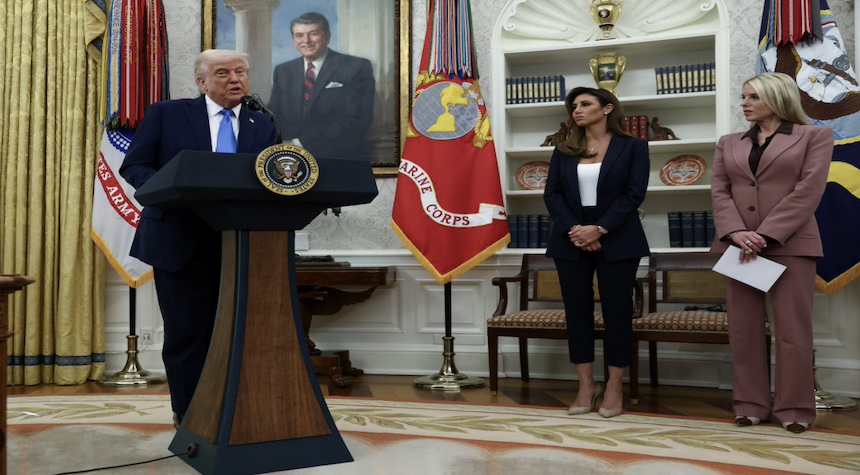The U.S. Attorney’s office in New Jersey has become embroiled in a complex legal and political situation involving the appointment and removal of its top prosecutor.
Attorney General Pam Bondi announced today that Desiree Leigh Grace, who had been named just hours earlier as the replacement for interim U.S. Attorney Alina Habba, has been removed from the position. This development follows a decision by Chief Judge Renee Marie Bumb to appoint Grace under a statute that permits district court judges to name a prosecutor if the president’s nominee has not been confirmed by the Senate after 120 days.
Alina Habba, a former defense attorney for President Donald Trump, had been serving in an acting capacity for the past 120 days. The White House has expressed full confidence in Habba and stated its intention to work towards her Senate confirmation, despite opposition from Democratic senators from New Jersey.
During Habba’s time in office, she pursued high-profile prosecutions, including a case against Newark Mayor Ras Baraka, which was later dropped, and an ongoing assault case against Representative LaMonica McIver. Both cases involved Democratic officials and stemmed from a visit to a privately operated immigration detention center.

This situation raises important questions about the appointment process for U.S. Attorneys and the role of judicial intervention in these matters. The Justice Department, through Attorney General Bondi, has indicated it will not accept what it terms “rogue judges” making such appointments.
The evidence suggests that political considerations are at play. New Jersey’s two Democratic senators, Cory Booker and Andy Kim, have expressed opposition to Habba’s appointment, citing concerns about her qualifications and alleging politically motivated prosecutions.
This development follows earlier reports of Habba’s involvement in various legal matters related to President Trump, including serving as his legal spokesperson and representing him in civil lawsuits. Her limited federal court experience has been a point of contention.
The situation remains fluid, with questions about the future leadership of the U.S. Attorney’s office in New Jersey still unanswered. As always, the public’s right to information about the functioning of our justice system remains paramount.


